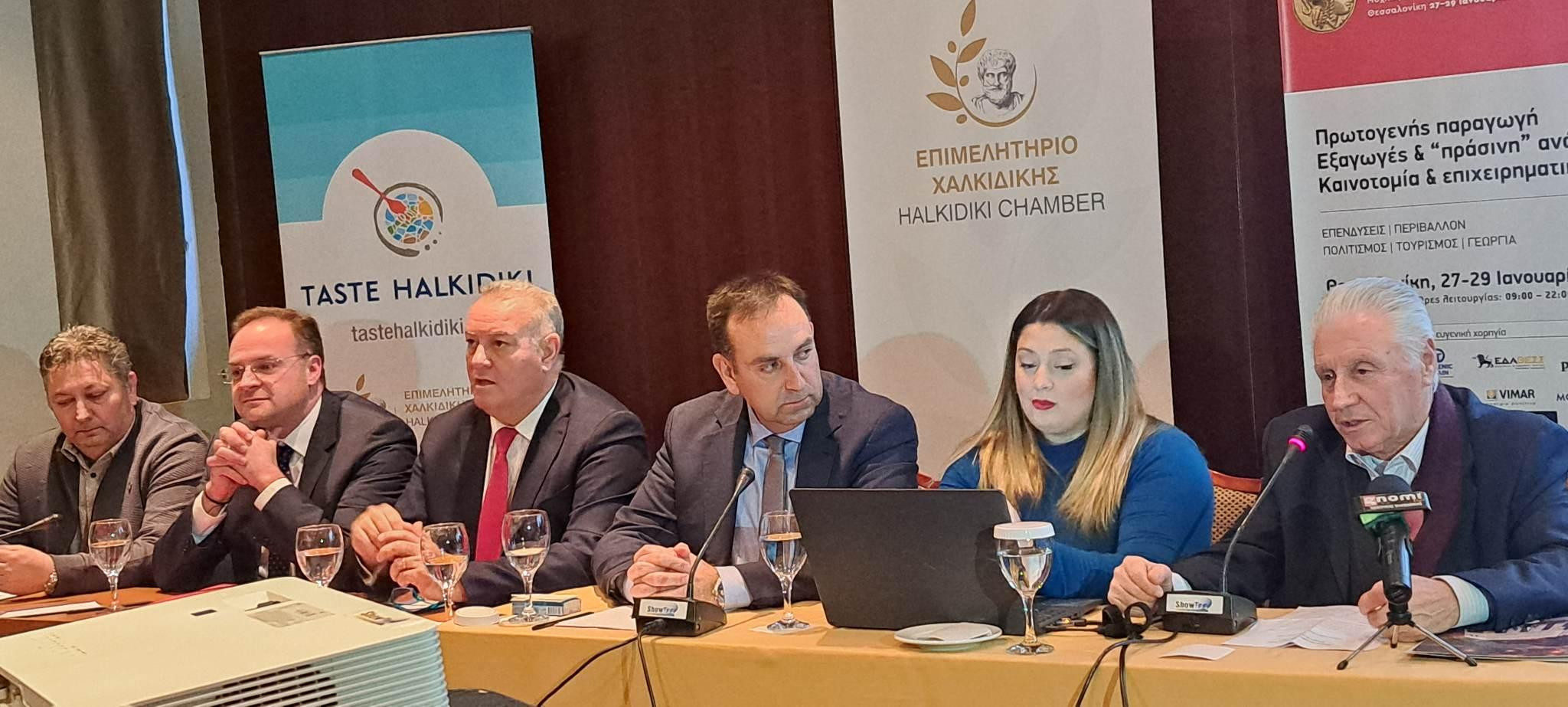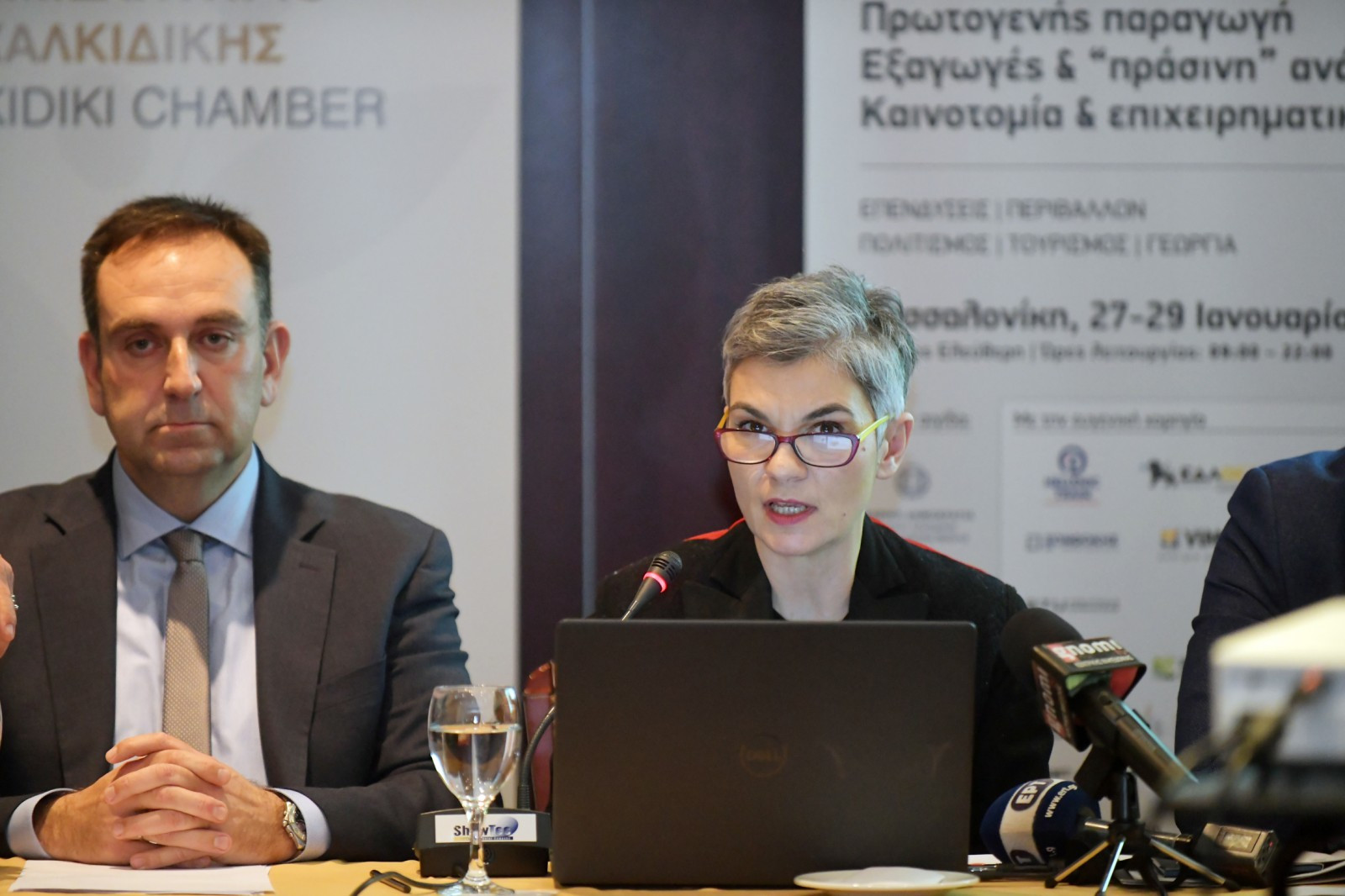“The reduced flowering will result in a reduction in the number of olives per tree, but also in the degradation of the quality of the oil”, points out Mrs. Anagnostopoulou.
The future is ominous for the variety of the green table olive of Halkidiki, due to climate change, according to research carried out, with funding from the Chamber of Halkidiki, by Christina Anagnostopoulou, a professor at the School of Applied Sciences/Meteorology Department of the Aristotle University of Thessaloniki (AUTH).
“The increase in temperature, the decrease in rainfall, as well as the need for water, particularly important for olive cultivation, portend a gloomy future for olive cultivation in Halkidiki, with negative consequences for the quality of the fruit, their reduction in the tree and the quality of of olive oil, with a simultaneous increase in the enemies of the olive”, notes Mrs. Anagnostopoulou.
The increase in the average temperature in the region, due to the intensity of the climate change phenomenon, is estimated at 1.5-2 degrees Celsius. A change in the rainfall regime is observed, with the most continental regions experiencing the greatest changes, at a time when the water needs for olive cultivation are significant.
The main olive growing areas in Halkidiki are located in the most dry areas of the prefecture, with the demands thus being high, as Ms. Anagnostopoulou explains, noting that “non-irrigated olive crops will not be able to be maintained in the region of Halkidiki”.
In this context, as he emphasizes, the reduction of rainfall in more northern and continental regions will have the possible result of reducing water reserves and therefore the irrigation capacity of each region. In fact, according to her, more and more often, olive crops will be in conditions of thermal stress, which according to her will have a negative consequence on the quality of the fruit.
The increase in temperature, as a consequence of the intensity of the climate change phenomenon, especially in the winter season, seems, as he underlines, to affect the development of flower buds, which will lead to the creation or even increase of the problems of collecting the necessary cold degrees for the breaking dormancy and flowering of the olive tree.
“The reduced flowering will result in a reduction in the number of olives per tree, but also in the degradation of the quality of the oil“, points out Mrs. Anagnostopoulou.
In addition, according to the AUTH professor, the cumulative scores that affect the appearance of the olive’s enemies, and in particular the pit borer, seem that in the future they will increase and the quality of plant production will change significantly, especially in the spring and summer months.
In this context, she wonders “how ready is Halkidiki for climate change?”.
It is noted that the presentation of the above research was made by the AUTH professor herself at an event organized by the Chamber of Halkidiki in the context of the 31st Money Show.
The challenges
At the same event, the professor of the School of Mechanical Engineering of the AUTH, Christos Vlachokostas, presented the first findings from the research he is conducting with funding from the Chamber of Halkidiki and concerns the investigation of sectoral entrepreneurship in the prefecture of Halkidiki and sustainable entrepreneurship.
According to him, “smart” legislation, consumption and specialization in the circular economy are just some of the elements that constitute sustainable competitiveness.
As Mr. Vlachokostas characteristically mentioned, in a prefecture like Halkidiki, with a higher GDP than the average of the Central Macedonia Region and the main sector of employment catering and hospitality services, “the rational conservation of water resources, the management of of waste, ‘smart agriculture’, as well as ‘smart’ and tech-savvy farmers’.
At the event, the president of the Chamber of Halkidiki, Yiannis Koufidis, referred to the organization’s actions and made special mention of the creation of “Taste Halkidiki”, the program that aims to promote local gastronomy as a form of alternative tourism, with funding from AN.ET.XA and the LEADER program.
In his greeting, the deputy governor of Halkidiki, Yiannis Giorgos, referred to the course and development of Halkidiki, which made it an important tourist destination with international visibility, as well as the many important projects that have already been done and those that are planned.
Also present at the event were the mayors of Nea Propontida, Manolis Karras, Kassandra, Anastasia Chalkia, Aristoteli, Stelios Valianos, the deputy mayor of Polygyros, Yiannis Simonis, and the representative of the mayor of Sithonia, Antonia Dalavitsiou.
RES-EMP
Read the News today and get the latest news.
Follow Skai.gr on Google News and be the first to know all the news.
I have worked as a journalist for over 10 years, and my work has been featured on many different news websites. I am also an author, and my work has been published in several books. I specialize in opinion writing, and I often write about current events and controversial topics. I am a very well-rounded writer, and I have a lot of experience in different areas of journalism. I am a very hard worker, and I am always willing to put in the extra effort to get the job done.












